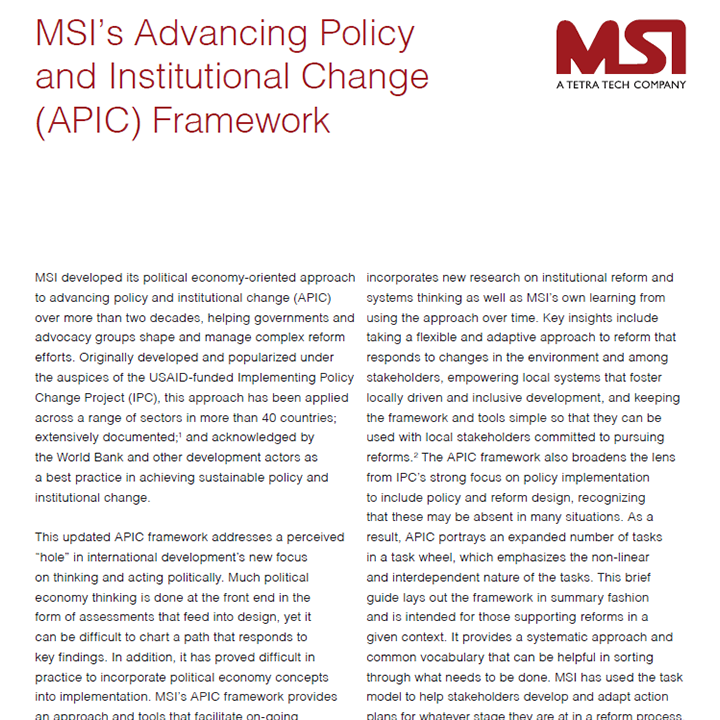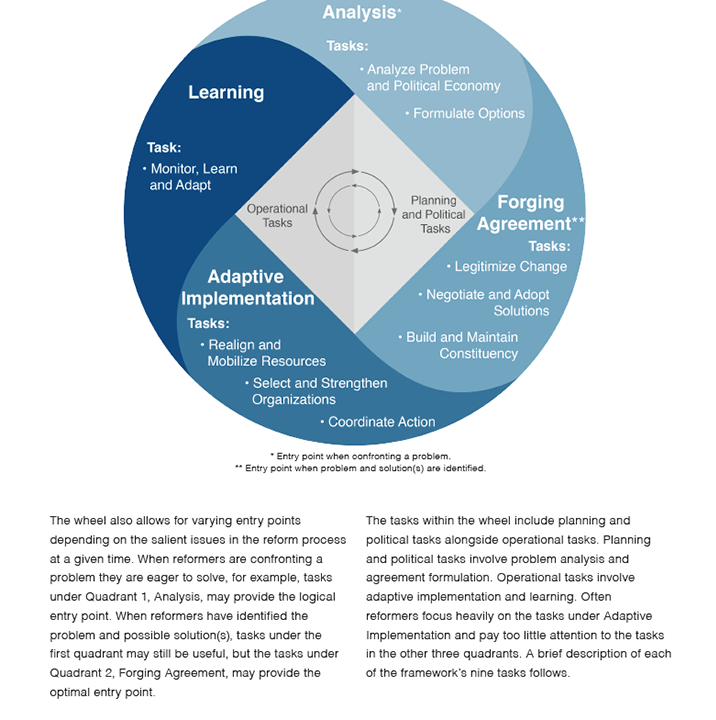MSI has developed a political economy-oriented approach to advancing policy and institutional change (APIC), helping governments and advocacy groups shape and manage complex reform efforts. Originally developed and popularized under the auspices of the USAID-funded Implementing Policy Change Project (IPC), this approach has been applied across a range of sectors in more than 40 countries, extensively documented and acknowledged by the World Bank and other development actors as a best practice in achieving sustainable policy and institutional change.


This updated APIC framework addresses a perceived “hole” in international development’s new focus on thinking and acting politically. Much political economy thinking is done at the front end in the form of assessments that feed into design, yet it can be difficult to chart a path that responds to key findings. In addition, it has proved difficult in practice to incorporate political economy concepts into implementation. MSI’s APIC framework provides an approach and tools that facilitate on-going analysis of and responses to political context. It also incorporates new research on institutional reform and systems thinking as well as MSI’s own learning from using the approach over time. Key insights include taking a flexible and adaptive approach to reform that responds to changes in the environment and among stakeholders, empowering local systems that foster locally-driven and inclusive development, and keeping the framework and tools simple so that they can be used with local stakeholders committed to pursuing reforms.
The APIC framework also broadens the lens from IPC’s strong focus on policy implementation to include policy and reform design, recognizing that these may be absent in many situations. As a result, APIC portrays an expanded number of tasks in a task wheel, which emphasizes the non-linear and interdependent nature of the tasks. This brief guide lays out the framework in summary fashion and is intended for those supporting reforms in a given context. It provides a systematic approach and common vocabulary that can be helpful in sorting through what needs to be done. MSI has used the task model to help stakeholders develop and adapt action plans for whatever stage they are at in a reform process.
Using APIC, MSI provides hands-on technical assistance, training, and process consulting to government offices, civil society groups and public-private partnerships. Our support includes assessing political and organizational assets and obstacles for implementing policies, analyzing stakeholder interests and concerns, and engaging citizens and resolving conflicts through the design of innovative structures and processes.